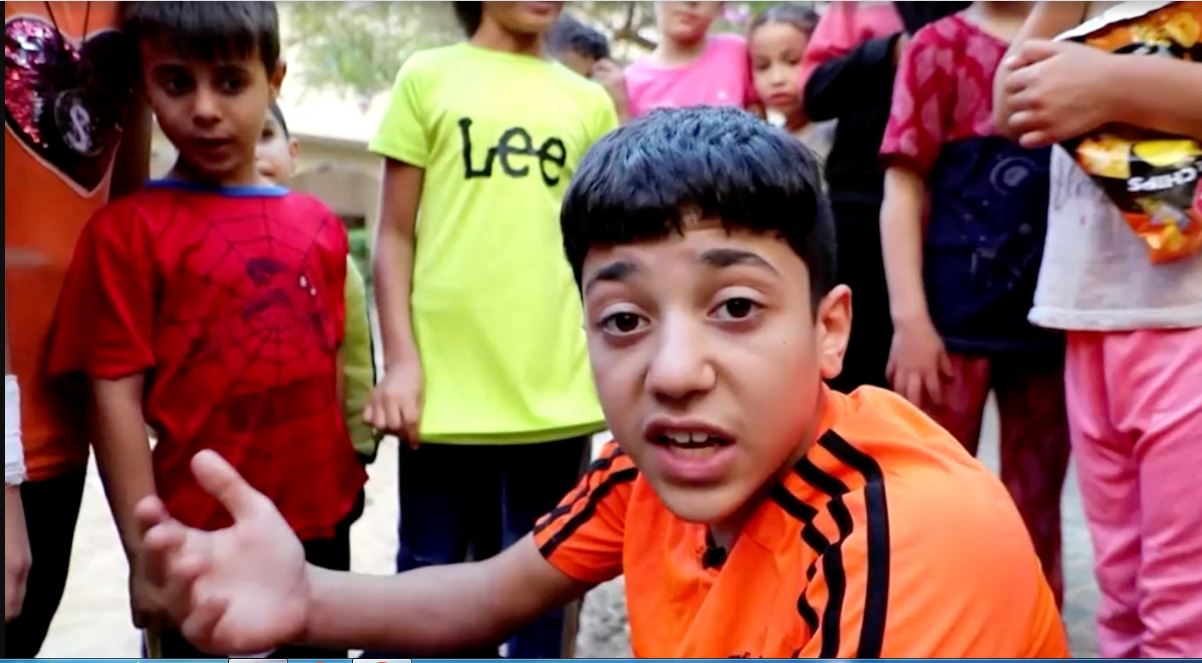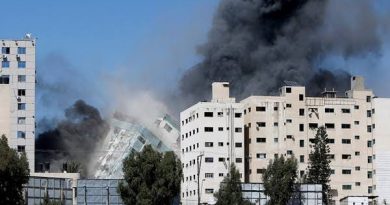Gaza turns into nightmare for 13-year-old British-Palestinian
Gaza (Reuters) – Just a year after arriving in his native Gaza from the UK, 13-year-old Omran Abu Assi is hoping for an exit for his family via the Rafah crossing into Egypt, as the realities of the Israel-Hamas war set in.
Abu Assi said he had found life in the Gaza Strip, one of the world’s most densely populated places, interesting, but nine days ago his life changed.
Fleeing barrages of Israeli air strikes and missiles, the British passport holder and his family recently settled in Gaza’s southern Khan Younis city, along with hundreds of thousands of other evacuees.
“I’m here in the park, in the city. The kids are playing in the park, with the bombs going off, there’s planes above that could bomb at any moment. It’s unsafe, it’s not fair,” said Abu Assi, whose parents gave Reuters permission to speak to him as he is a minor.
“I feel bad for the kids. It’s not the kids’ fault that this war happened. It’s no one’s fault. It’s not fair that this is happening, it shouldn’t be happening.”
The Israeli military has been pounding the Gaza Strip with unprecedented firepower ever since Palestinian militant group Hamas, which rules the enclave, launched the biggest attack on Israel since the 1973 Yom Kippur War, killing more than 1,300 people.
“The war really has affected Gaza in a horrible way. This.. homes have been destroyed, there’s people sleeping on the streets, you can see rubble nearly everywhere you go,” he said.
“It’s really, it’s horrible. There’s fires, smoke, anywhere you look. There’s sand everywhere. It’s like a war zone. It is a war zone,” a clearly exhausted Abu Assi said.
Gaza’s more than 2 million people, who have been under siege for more than a week, are now bracing for an Israeli ground invasion.
Israel said on Monday that no ceasefire had been implemented in southern Gaza, even though security sources in Egypt said a deal had been reached to allow foreigners out of the besieged Palestinian enclave and aid to be brought in.
The bombardment in Gaza continued overnight, with residents saying it was the heaviest pounding yet in nine days of conflict.
Authorities in Gaza said at least 2,750 people had so far been killed by the Israeli strikes, a quarter of them children, and nearly 10,000 wounded. Another 1,000 people were missing and believed to be under rubble.
Britain’s foreign office on Friday updated its travel guidance to tell its citizens in Gaza to follow Israeli advice and relocate to southern Gaza.
“Maybe I could leave Gaza, if Rafah does open, then Alhamdulillah (praise be to God), maybe I could leave because of the bombs. Clearly, no one wants to die obviously, everyone, including me and my family, we’re all stressed out, we don’t know what to do,” said Abu Assi.
“If Rafah doesn’t open we could be in serious trouble. I don’t know what to do. I’ve been this war, I don’t know, five, six days now. I’ve lost track of the weeks. It really has been so stressful,” he said.



